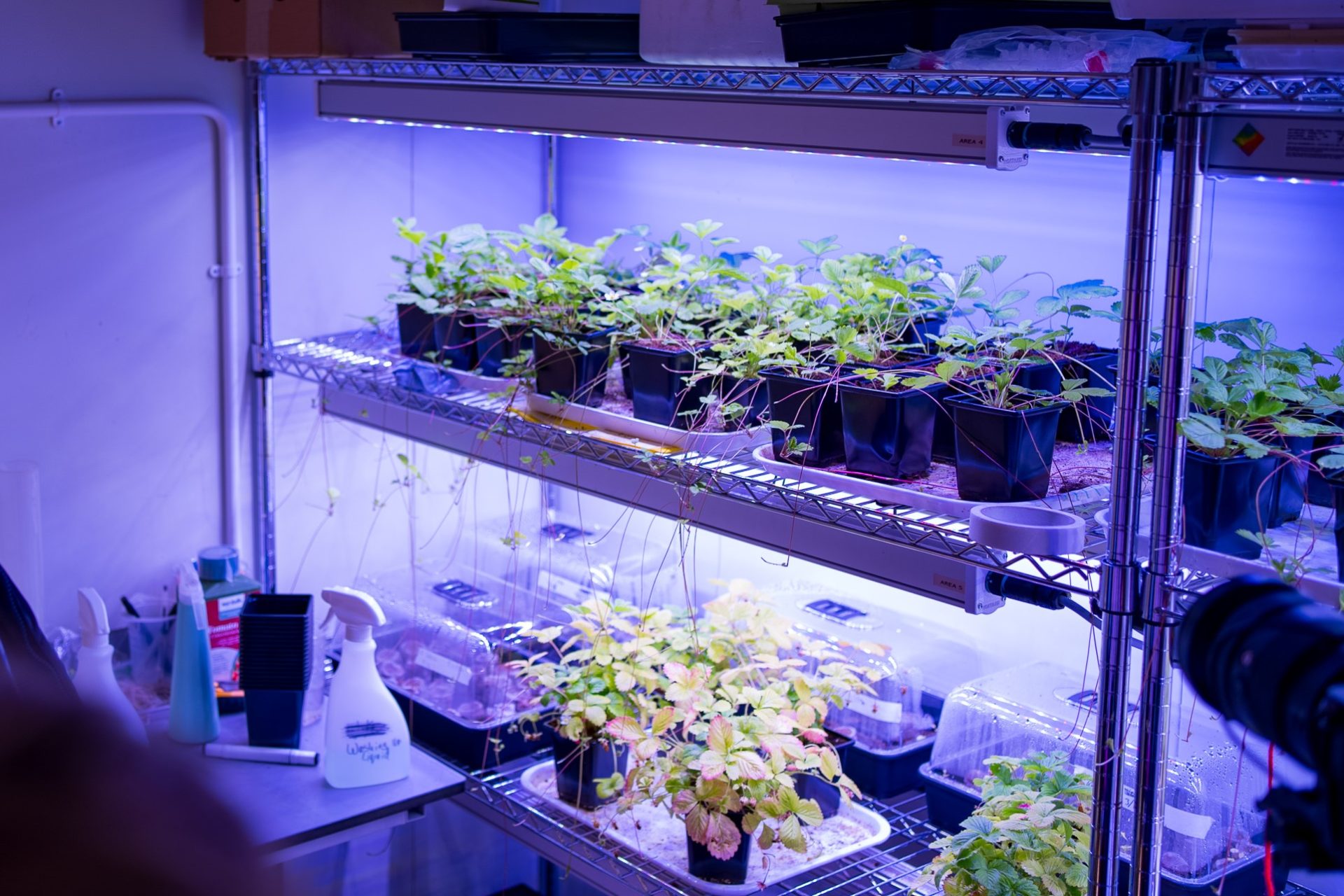Plastic waste, soil health and marketing of UK hops are just some of the challenges that academics in the School of Biosciences and School of Chemistry and Forensic Science will be working with local businesses to overcome after securing a total of £145,471 in Growing Kent and Medway Business Innovation Vouchers.
The voucher scheme allows organisations to draw upon the expertise of technical specialists based at three research institutes in Kent and Medway, including the University of Kent. Applicants had to propose an innovative idea to help make their products, processes or production more sustainable. The competition was open to businesses across the horticulture and plant-based food and drink industries, with vouchers of £15,000 to £30,000 available.
Five of the 13 projects funded by the scheme will be supported by researchers at Kent to advance sustainable innovation in our food systems. The winning projects are:
Reducing the environmental impact of commercial seaweed cultivation
Using Kent’s extensive library of yeast species, Professor Tobias von der Haar will work with Nutri-San to develop a yeast strain which can break down and destroy the plastic used in the seaweed cultivation process.
Development of a measure, report and verification protocol for enhanced rock weathering to improve soil fertility
Dr Rob Barker will help the UK Carbon Code of Conduct understand the impact of different sizes, types and application rates of small rock particles (known as fines, a waste product from quarrying) on carbon capture and soil health. The data could lead to new commercial collaborations between quarry owners and farmers, with the additional environmental benefit of removing more carbon from our atmosphere and healthier soils.
Enhancing soil health through innovative microbiome manipulation
Dr Anastasios Tsaousis will use cutting-edge genetic sequencing techniques to help Inspro Ltd to understand how different diets and environments influence the gut microbiome of black soldier fly larvae and how the natural fertiliser they produce can improve the nutrient availability and microbial diversity in soil.
Harnessing UK hops for sustainable non-alcoholic beer production
Dr Helen Cockerton will analyse the chemical profiles of hops to support Wantsum Brewery to develop a new, sustainable, non-alcoholic beer using UK-grown hops. This would offer conscientious drinkers the opportunity to enjoy a beer containing a high-quality real ale flavour profile, without the alcohol, whilst reducing the beer’s carbon footprint.
Enhancing the uptake of UK hops by national breweries through comprehensive hop sensory and chemical assessments
Dr Helen Cockerton will work closely with Ramsgate Brewery and a Kent-based hop breeder to delve into the unique aroma, flavour and chemical composition of UK hops to help breweries select and use the right hops for their needs.
More details about each of these projects are available on the Growing Kent and Medway website.
Chris McCarthy, Innovation Growth Manager at the University of Kent said: ‘We’re delighted to have had five projects awarded Business Innovation Vouchers in this round of funding across a broad spectrum of areas. This is a testament to the strong relationships that Kent has with local industry partners and our continued focus on driving innovation in the region.’
Dr Nikki Harrison, Director, Growing Kent & Medway, said: ‘The projects we have funded demonstrate innovative thinking to tackle some of the main challenges facing our UK food systems.
‘Our voucher scheme gives businesses across the UK access to the cutting-edge research facilities we have here in Kent and Medway. The specialists at these institutions are leading the way in helping to make our food systems more sustainable. From innovations in plant-based foods, to sustainable packaging, to increasing the carbon we can store in our fields. Kent is at the forefront of innovation in sustainable food systems and we’re excited to be connecting businesses across the UK to these centres.’

